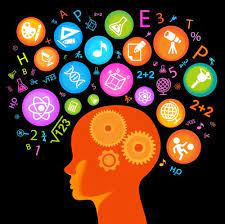The Impact of Electronic Databases on Education: A Digital Revolution

In the era of digitalization, electronic databases have become integral to various aspects of our lives, profoundly transforming the landscape of education. The effect on education is so profound that it can be likened to a digital revolution, reshaping how students learn, teachers instruct, and institutions operate. This article explores the multifaceted influence of electronic databases on education, highlighting their transformative effect on traditional learning paradigms.
- Effect on Education: Redefining Access to Information
The primary way electronic databases have impacted education is by revolutionizing the accessibility of information. In the past, students were confined to traditional libraries, limiting the scope of their research. Electronic databases have broken these barriers, providing students with a vast and diverse pool of information at their fingertips. This increased accessibility fosters a culture of self-directed learning, empowering students to explore beyond the confines of their textbooks.
- Effect on Education: Enhancing Research and Critical Thinking Skills
The proliferation of electronic databases has significantly elevated the quality of research conducted by students and educators. With a vast array of scholarly articles, journals, and research papers available online, students now have the resources to delve into complex subjects with depth and nuance. This, in turn, cultivates critical thinking skills as students learn to sift through information, analyze data, and synthesize knowledge from various sources.
- Effect on Education: Facilitating Collaborative Learning
Electronic databases have transformed education by fostering collaborative learning environments. With shared access to databases, students and educators can collaborate seamlessly on projects, research, and assignments. This interconnectedness breaks down geographical barriers and enables a global exchange of ideas, providing a more enriching educational experience.
- Effect on Education: Customizing Learning Paths
One of the most impactful aspects of electronic databases is their role in customizing learning paths for individual students. Adaptive learning systems use data from electronic databases to tailor educational content based on a student’s strengths, weaknesses, and learning pace. This personalized approach ensures that students receive targeted support, ultimately enhancing their academic performance.
- Effect on Education: Streamlining Administrative Processes
Beyond the classroom, electronic databases have streamlined administrative processes in educational institutions. From student records and enrollment to grading systems, these databases enhance efficiency, reduce paperwork, and eliminate manual errors. The effect on education is evident in the improved administrative workflow, allowing educators to focus more on teaching and less on bureaucratic tasks.
- Effect on Education: Real-time Assessment and Feedback
Electronic databases facilitate real-time assessment and feedback, revolutionizing the way educators evaluate student progress. Online quizzes, exams, and instant grading systems provide timely feedback, enabling students to identify areas for improvement promptly. This real-time assessment contributes to a more dynamic and responsive educational environment.
- Effect on Education: Cultivating Digital Literacy Skills
The integration of electronic databases in education plays a pivotal role in cultivating digital literacy skills among students. Navigating and extracting information from online sources, discerning credible from unreliable information, and understanding digital ethics are essential skills for the 21st-century learner. The effect on education is not just academic but extends to preparing students for the digital demands of the modern workforce.
- Effect on Education: Encouraging Lifelong Learning
Electronic databases foster a culture of lifelong learning by providing a continuous stream of updated information. Students and educators alike can stay abreast of the latest developments in their respective fields, encouraging a mindset of continuous improvement. This effect on education extends beyond formal academic settings, promoting a commitment to ongoing intellectual growth.
- Effect on Education: Addressing Learning Inequalities
Electronic databases have the potential to address learning inequalities by providing equal access to information regardless of geographic location or economic status. Online educational resources and databases level the playing field, ensuring that students in remote areas or underserved communities have access to the same wealth of information as their more privileged counterparts.
- Effect on Education: Shaping the Future of Teaching and Learning
In conclusion, the effect of electronic databases on education is transformative, shaping the future of teaching and learning. As technology continues to advance, educators and students must adapt to the evolving educational landscape. By recognizing and harnessing the potential of electronic databases, we can ensure that education remains a dynamic and empowering force in the digital age. The keyword “effect on education” resonates throughout this transformative journey, emphasizing the profound impact that electronic databases have on the educational experience



